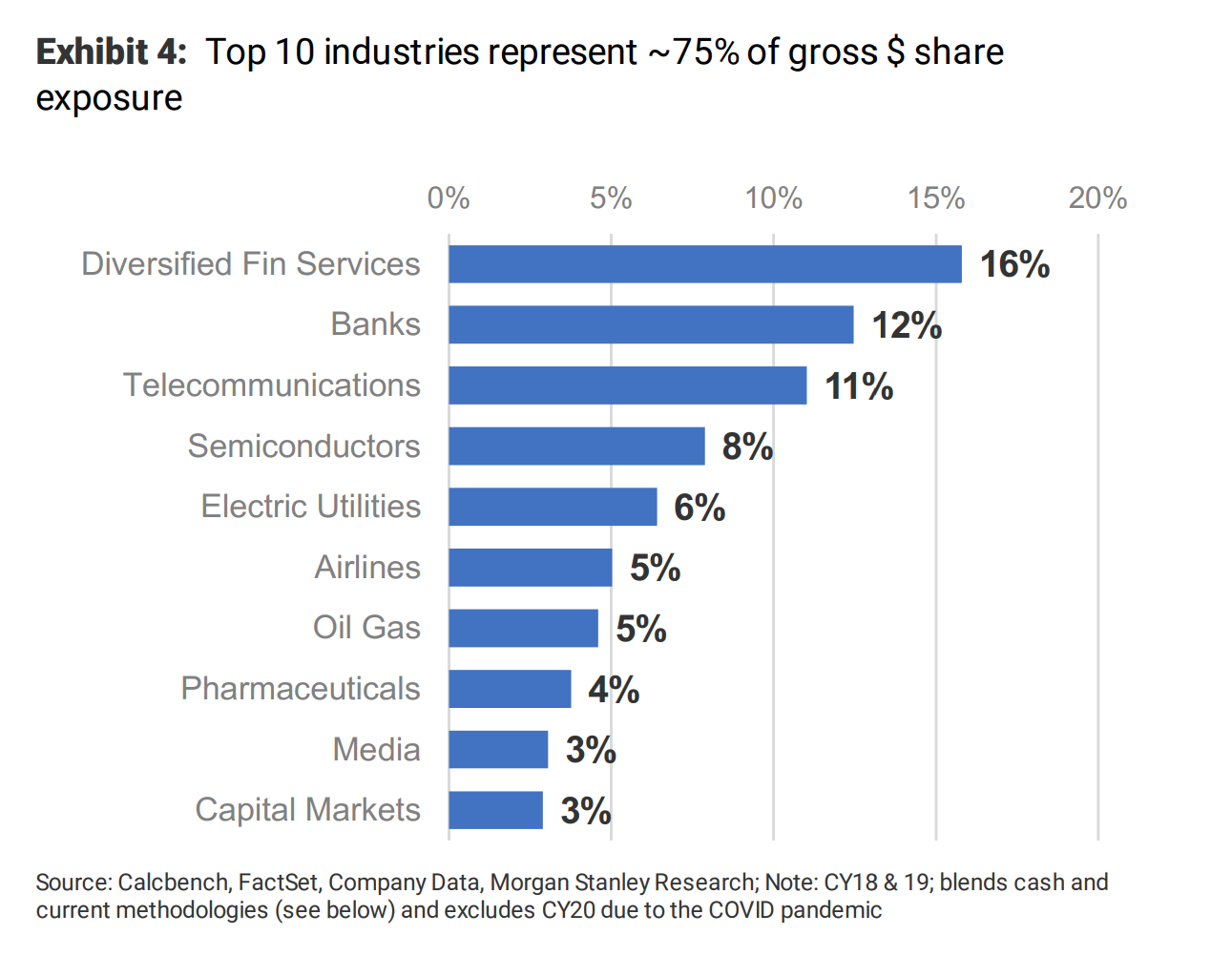Calcbench loves to see how financial analysts put data to work, so we were delighted earlier this week when Morgan Stanley published a research note gaming out various ways that tax proposals floated by the Biden Administration might affect Corporate America.
If you haven’t heard yet, one idea is to enact a 15 percent minimum tax on the profits that certain large firms report in their financial statements — a so-called “book tax,” since the profits that a firm reports in the financial statements are not, for various accounting reasons, the same profit number that the firm reports on its tax return.
Specifically, the Biden Administration proposal is to impose this book tax on firms that report more than $2 billion in profit. A firm fitting that profile would need to make an additional tax payment, beyond its normal tax liability for that year, so that the total amount equals 15 percent of global profits reported on the financial statements.
So the research gurus at Morgan Stanley’s Global Valuation, Accounting & Tax team dove into our data to determine: How many businesses might actually get hit by a tax like this? And how much could those higher tax payments cut into net income and free cash flow?
The full report is titled, “Next Chapter of Biden's Book Tax: Who's Potentially Exposed.” We won’t steal all the glory from the MS research note, but here are some key findings:
- Roughly 200 companies report $2 billion+ in net income, and would be in the book tax zone
- But only about 45 companies would be candidates to pay the tax, facing an average payment of about $350 million
- Companies exposed to the tax could see hits of 10 percent to net income, and 13 percent to free cash flow
- The tax would generate about $10 billion to $20 billion annually
Now, to be clear, this book tax is not going into force any time soon. The Treasury Department has proposed the idea, but it takes an act of Congress to change corporate tax rates. These days Congress can barely agree that the sun rises in the east, so lord knows when a tax change will see the light of day.
Still, there’s plenty of data available — right here in our archives, naturally! — to model the possible consequences of such a book tax. For example, Morgan Stanley also calculated which industries would bear the biggest burden. See Figure 1, below.

If you’d like to build your own model with Calcbench data, we designed a simple template to calculate how the minimum book tax might affect individual firms. Calcbench subscribers can download our template and model to your heart’s content!